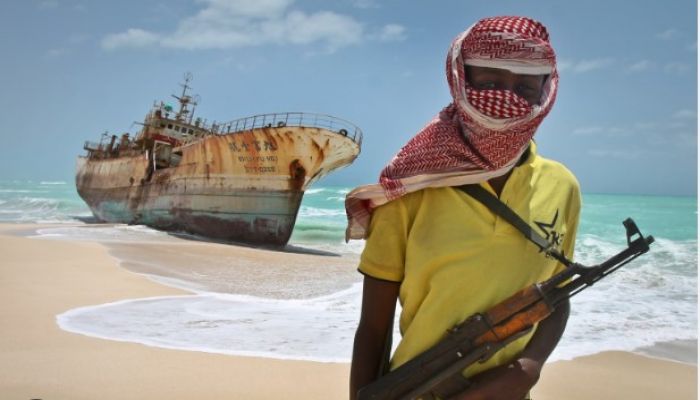
International Desk
Publish: 16 Mar 2024, 01:28 pm

An Image Of A Pirates. Photo: Collected
Pirates have plagued the world's oceans for eons. But in November 2008, when Somali pirates captured a massive Saudi oil tanker and held it and its crew for ransom, it became clear that piracy wasn't a Disneyland ride but a modern-day problem. After a well-coordinated attack on the Sirius Star, the pirates sailed the tanker back to the mainland to join other unlucky ships before collecting a $3 million ransom, per "Pirates of Puntland, Somalia."
These well-armed and organized pirates were once fishermen. In 1991, the collapse of the government under longtime dictator Mohamed Siad Barre led to a drawn-out and bloody civil war. For the country's fishermen, it also meant the loss of Somalia's coast guard, which had kept out foreign fishing boats. According to "Somalia's 'Pirate Cycle': The Three Phases of Somali Piracy," this soon devastated the country's fisheries. Some of Somalia's fishermen began patrolling the sea to keep out foreign fishing vessels that had invaded their waters. But eventually, the fishermen turned to a more lucrative business.
A Perfect Storm
Along with the fall of the Somali government in 1991 and years of unrest came hard economic times. Besides a shattered economy and foreign fishing fleets, European companies also used the cover of the nation's fractured state to illegally dump toxic waste into its waters, sickening hundreds of Somalis and further destroying its fishing waters, per Al Jazeera and the GlobalPost. These factors helped birth Somali piracy.
"This is a fact, this is not something we are making up. And this is how [piracy] started," Abdiweli Mohamed Ali, Somalia's prime minister at the time, told the GlobalPost in 2012. "I'm not condoning the hijacking of ships off Somalia but ... if we're going to address piracy we should address both piracies." He also blamed "the toxic waste dumping in our coastal waters." From 1991 to 1999, more than 200 foreign fishing vessels used unsustainable fishing methods, pushing out locals and devastating the industry, per "Somalia's 'Pirate Cycle.'"
Rise And Fall
The Somali fishermen who began attacking and demanding money from these foreign ships believed they were in the right. "We consider sea bandits those who illegally fish in our seas and dump waste in our seas and carry weapons in our seas," a Somali pirate, Sugule Ali, told The New York Times in 2008. "We are simply patrolling our seas. Think of us like a coast guard."
What began as a few acts of piracy in the early 1990s, had become big business by the mid-2000s. There were 239 acts or attempted acts of piracy off the coast of Somalia in 2011 alone, per "Somalia's 'Pirate Cycle'." The pirates had also advanced from small bands to well-coordinated gangs that were making millions from ransoming huge ships. Today, Somali piracy has dropped dramatically. From 2016 to 2022, there were only eight actual or attempted acts of Somali piracy, according to Statista. The fall is mainly due to the world's navies guarding cargo and other ships passing near Somalia, per the Middle East News Agency.
Subscribe Shampratik Deshkal Youtube Channel
© 2024 Shampratik Deshkal All Rights Reserved. Design & Developed By Root Soft Bangladesh